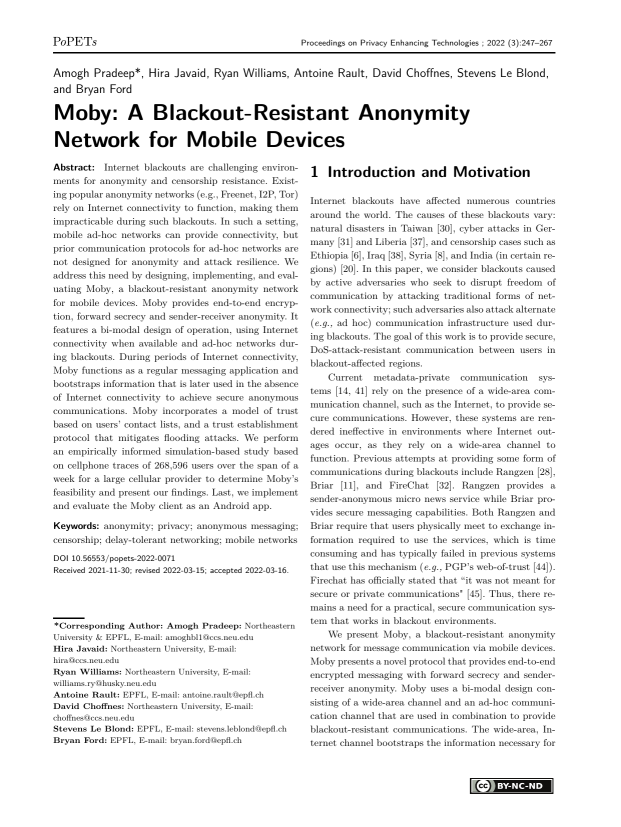Moby: A Blackout-Resistant Anonymity Network for Mobile Devices
Authors: Amogh Pradeep (Northeastern University & EPFL), Hira Javaid (Northeastern University), Ryan Williams (Northeastern University), Antoine Rault (EPFL), David Choffnes (Northeastern University), Stevens Le Blond (EPFL), Bryan Ford (EPFL)
Volume: 2022
Issue: 3
Pages: 247–267
DOI: https://doi.org/10.56553/popets-2022-0071
Abstract: Internet blackouts are challenging environments for anonymity and censorship resistance. Existing popular anonymity networks (e.g., Freenet, I2P, Tor) rely on Internet connectivity to function, making them impracticable during such blackouts. In such a setting, mobile ad-hoc networks can provide connectivity, but prior communication protocols for ad-hoc networks are not designed for anonymity and attack resilience. We address this need by designing, implementing, and evaluating Moby, a blackout-resistant anonymity network for mobile devices. Moby provides end-to-end encryption, forward secrecy and sender-receiver anonymity. It features a bi-modal design of operation, using Internet connectivity when available and ad-hoc networks during blackouts. During periods of Internet connectivity, Moby functions as a regular messaging application and bootstraps information that is later used in the absence of Internet connectivity to achieve secure anonymous communications. Moby incorporates a model of trust based on users’ contact lists, and a trust establishment protocol that mitigates flooding attacks. We perform an empirically informed simulation-based study based on cellphone traces of 268,596 users over the span of a week for a large cellular provider to determine Moby’s feasibility and present our findings. Last, we implement and evaluate the Moby client as an Android app.
Keywords: anonymity; privacy; anonymous messaging; censorship; delay-tolerant networking; mobile networks
Copyright in PoPETs articles are held by their authors. This article is published under a Creative Commons Attribution-NonCommercial-NoDerivs 3.0 license.

